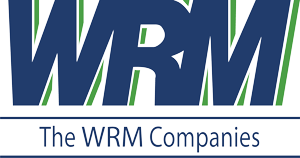As communities grow and urban sprawl continues, managing the byproducts of our daily lives becomes crucial for sustainability and environmental protection. One often overlooked aspect of this management is the proper handling of grease traps. Effective grease trap management supports community health and plays a vital role in maintaining the efficiency and longevity of wastewater treatment systems. Companies like Southwaste Disposal in Texas and Florida, McDonald Farms in Colorado, and Silver City in Las Vegas are at the forefront of ensuring these systems are properly managed.
Understanding Grease Traps
A grease trap, sometimes known as a grease interceptor, is a plumbing device designed to intercept most greases and solids before they enter a wastewater disposal system. Common in commercial establishments like restaurants, cafeterias, and Hotels or Casinos, grease traps prevent heavy grease and solids from getting into the municipal sewer systems, where they can cause blockages and overflows. These devices are essential in avoiding costly clean-ups and environmental damage from sewer system overloads.
The Importance of Grease Trap Management
Effective grease trap management is crucial for several reasons:
- Preventing Blockages: Grease solidifies and sticks to wastewater pipes, causing blockages that can lead to backups and overflows, disrupting businesses and local communities.
- Protecting the Environment: Proper grease disposal helps protect the local water quality from pollutants that are difficult and costly to remove.
- Compliance with Regulations: Many localities have specific regulations requiring proper grease trap maintenance to prevent sewer issues, making compliance a legal imperative for businesses.
Steps in Managing a Grease Trap
- Regular Cleaning and Maintenance: Grease traps should be cleaned regularly, depending on the amount of grease a facility produces and local regulations. This often means monthly cleanings to ensure that the system operates efficiently.
- Proper Disposal: The grease collected must be disposed of according to local regulations. Incorrect disposal can lead to legal penalties and environmental harm.
- Professional Inspection and Repair: Regular inspections by professionals can help identify potential issues before they become significant problems, ensuring that the traps function correctly.
- Employee Training: Educating staff on the importance of minimizing the amount of grease used and disposed of via sinks is vital for reducing grease trap problems.
How Industry Leaders Can Help
Managing a grease trap properly requires expertise and consistent care, which is where professional waste resource management companies come into play. In Texas and Florida, Southwaste Disposal specializes in collecting, treating, and properly disposing grease trap waste. McDonald Farms in Colorado offers environmental services, including grease trap maintenance, that ensure compliance and efficiency. Meanwhile, in Las Vegas, Silver City Processing provides comprehensive waste management services, including expert grease trap handling.
These companies not only ensure compliance with local regulations but also help extend the life of your plumbing systems, reduce emergency blockage incidents, and protect the environment. Leveraging their expertise can significantly alleviate the potential risks associated with poor grease trap management.
We are Who You Call If You Need Grease Trap Cleaning
For businesses that generate a significant amount of kitchen waste, particularly those in the food service industry, embracing efficient grease trap management practices is non-negotiable. Waste Resource Management companies like Southwaste Disposal, McDonald Farms, and Silver City stand ready to offer their expertise, ensuring that businesses can continue their operations without compromising the environmental health of their communities. Proper grease trap management is fundamental to responsible environmental stewardship and operational excellence.
